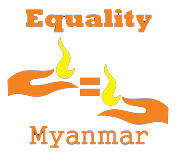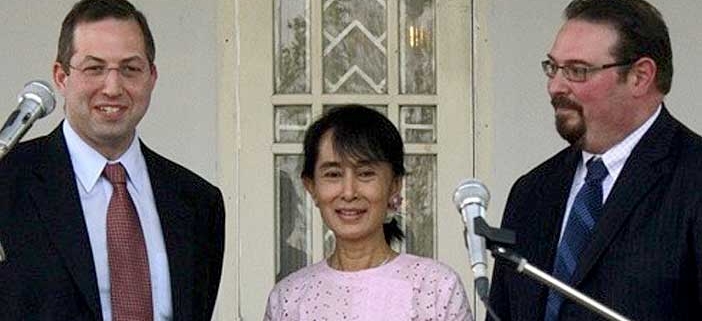WEDNESDAY, 20 JUNE 2012 00:00DVB
The Burmese government has failed to take adequate steps to address human trafficking, especially in conflict-affected territories such as Kachin state, despite making progress in some areas, a US state department report has warned.
“Trafficking within Burma both by government officials and private actors continues to be a significant problem,” said the US government’s 2012 Trafficking in Persons report released on Tuesday. “The Kachin ethnic minority are particularly vulnerable to trafficking due to an ongoing conflict between the Burma Army and the Kachin Independence Army.”
The Burmese government has made insufficient progress in “investigating, prosecuting, and convicting” perpetrators of internal trafficking – particularly through the use of forced labour, conscription and exploitation of child soldiers – according to the report.
The findings also echo concerns by women’s groups who say that sex trafficking cases have multiplied since the start of the Kachin conflict in June last year.
“Refugees and IDPs have few options for productive and remunerative work and may not see future possibilities for such work making them more likely to jump on an offer from a trafficker to help them, or their children, find work or educational opportunities outside of Burma,” warned a recent report by KWAT.
NGOs say that aid cuts affecting many of the 75,000 displaced persons living along the border are making them easy bait for criminal gangs that are known to scour the camps for targets.
But the US government has nonetheless upgraded Burma from their Tier 3 to their Tier 2 watch list in recognition of the government’s efforts to address trafficking, including setting up a national hotline to lodge complaints. It also praised their efforts to address forced labour in collaboration with the International Labour Organization (ILO).
“The Burmese government took a number of unprecedented steps to address forced labor and the conscription of child soldiers; these steps amount to a credible commitment to undertake anti trafficking reforms over the coming year,” said the report.
The ILO also recently revised their criticisms of the former pariah state, despite fresh reports by human rights groups in northern Arakan state suggesting that forced labour remains “widespread” and “systematic.”
“In general terms for all parts of the country, we have heard consistent reports that there has been a general reduction in the use of forced labour,” Steve Marshall, head of the ILO office in Rangoon, told DVB earlier this month.
Chris Lewa from the Arakan Project described the decision as “a bit disappointing.”
The US report also identifies the many Rohingya refugees living in Bangladesh as easy prey.
“Because authorities refuse to recognize members of certain ethnic minority groups (including the Rohingyas) as citizens and do not provide them with identification documentation, members of these communities are more vulnerable to trafficking,” said the report.
It urges the government to take immediate action to address outstanding concerns.
photo : Reuters


 Equality Myanmar (EQMM) is a leading nongovernmental organization that organises a wide range of human rights education and advocacy programs, the documentation human rights violations, and provides emergency support for activists, human rights defenders, and their families. We work with a range of local civil society organizations, educators, activists, various local actors, and our programs and activities reach all states and regions in Myanmar.
Equality Myanmar (EQMM) is a leading nongovernmental organization that organises a wide range of human rights education and advocacy programs, the documentation human rights violations, and provides emergency support for activists, human rights defenders, and their families. We work with a range of local civil society organizations, educators, activists, various local actors, and our programs and activities reach all states and regions in Myanmar.
